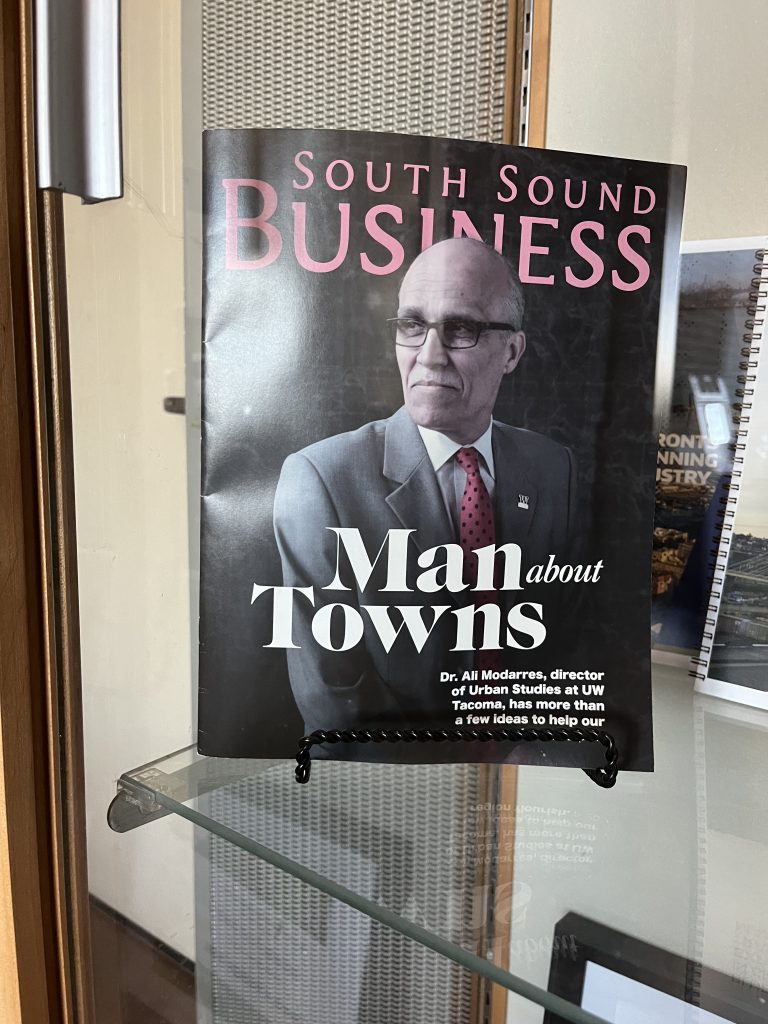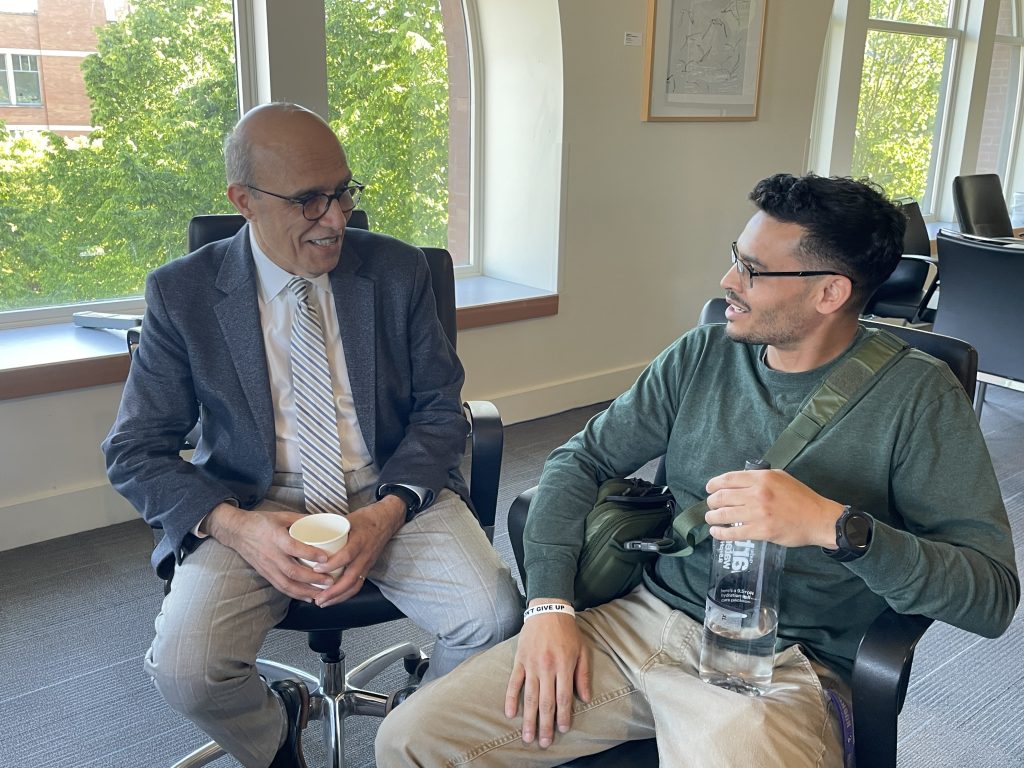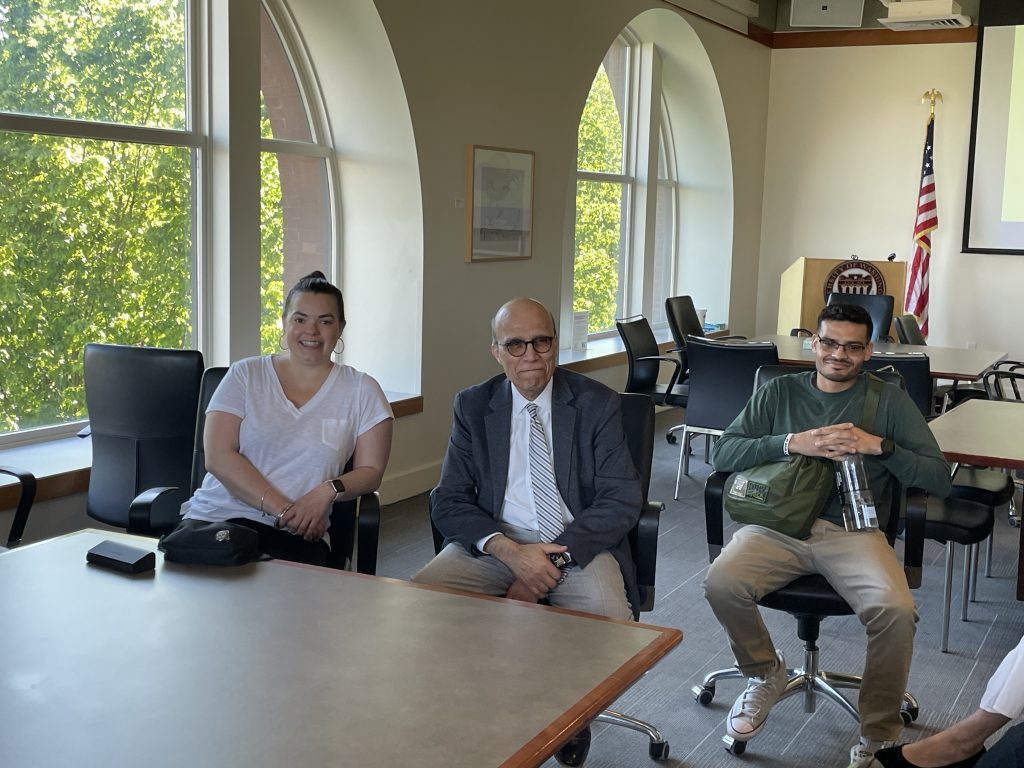Inaugural Dean set to retire from his position at UWT’s School of Urban Studies
While the UW Board of Regents prepares to transition the School of Urban Studies into new governance, faculty are preparing a retirement celebration for Dr. Ali Modarres.
After seven years of administrative service as the first Inaugural Dean of UW Tacoma’s School of Urban Studies and the former program director, Dr. Ali Modarres is retiring from his position.
The retirement celebration will be held in William W. Philip Hall on May 16 from 3 to 5 p.m. and RSVPs to attend can be made on the university website.
Dr. Modarres earned a Doctoral degree in Geography in 1990, a master’s degree in Landscape Architecture in 1985 and a bachelor’s degree in the same field of study in 1983 at the University of Arizona. He went on to teach and conduct administrative duties at California State University, before moving from Los Angeles to the Tacoma region, where he landed at UWT.
“He came with a very clear understanding of how he likes to lead, and he’s kind of a faculty advocate as an administrator,” said Dr. Mark Pendras, an associate professor of the School of Urban Studies.
Dr. Modarres brings both his research and lived experience as an immigrant from Iran into his work for UW Tacoma and the larger picture of his discipline. In addition to his contributions to academia, he is currently serving as a co-editor of the Journal of Race, Ethnicity and the City alongside Dr. Yasminah Beebeejaun, of University College London.
He also serves on city task forces, committees and advisory boards for academic associations like the Urban Affairs Association (UBA).
In 2022, Dr. Modarres was named a recipient of the Contribution to the Field of Urban Affairs Award, amongst other recipients from George Washington University, the University of Colorado and the University of Pennsylvania, according to the UBA.
When Dr. Modarres first joined Urban Studies in 2013, it was classified as an educational program. As a professor and scholar, he taught classes and published his work on the topics of immigration, urban development, policy and planning.
“From my standpoint, I think it’s a humbling experience to go through the process of co-learning with a community who lives with the issues that we research on,” Dr. Modarres said.
Since he became the Inaugural Dean in 2020, transitioning from his position as the program director, Dr. Modarres has worked with faculty and staff to create and revise degree programs, and add new degree programs. Together they developed a collective, community-engaged vision for Urban Studies as an official school.
“He was able to help the rest of us understand that and navigate that transition,” Dr. Pendras said. “It’s easy to get bogged down in the complexities of administration, and he’s always able to keep his eyes on the big picture.”
Assistant Teaching Professor Anthony Falit-Baiamonte of the School of Urban Studies has known Dr. Modarres throughout his tenure, having first met Dr. Modarres during his interview for the position of program director at the time.
“He’s the rare combination of a highly skilled teacher, researcher and administrator,” said Falit-Baiamonte.

During the creation of the Office of Community Partnerships in 2018, Dr. Modarres assisted in the development of a systematic understanding of the work that faculty and students do, to recognize the work being done through various modes of communication and awards ceremonies.
From 1999 to 2017, Dr. Modarres also served as the Editor-In-Chief of Cities: The International Journal of Urban Policy and Planning. As an immigrant of Persian descent, much of his scholarly research has involved the history of immigration and global labor migration, along with the economy and the geography of inequality.
“I want generations of students to remember that I am only the second person to lead Urban Studies, that the last decade was dedicated to making this school recognized by everyone in the region,” Dr. Modarres said.
In addition to facilitating the creation of the first undergraduate bachelor’s degree program in Urban Design on the west coast with his colleagues, Dr. Modarres also provided various mentoring opportunities, publication workshops and travel opportunities for faculty to advance their discipline and engage in community research and conversations.
“He’s very warm, very personable, very knowledgeable, so you know, talking with him about any topic, he always has something interesting and inciteful to offer,” Dr. Pendras said.
When the department was smaller, Dr. Modarres would sometimes offer faculty an open invitation to his home, where he cooked Persian dinners for the occasion.
He also occasionally brings baked treats and often shares cultural knowledge and experiences with his colleagues, according to Falit-Baiamonte.
“He’s easy to work with, he follows through, and you can just tell after a few interactions, he’s very kind, he cares, he listens, and he’s very engaged,” Falit-Baiamonte said.
Though his last day as the Inaugural Dean is June 15, Dr. Modarres will remain engaged in the UWT community part-time through his role as the Assistant Chancellor for Community Partnerships, continuing to help facilitate the work and projects of faculty, students and staff in the community.
“As far as our community partners are concerned, I am available, I’m not going anywhere,” Dr. Modarres said. “This is where I thrive, I enjoy the work, and I consider it a privilege. It’s my honor to be a part of this relationship between the university and the community.”

Featured Image, Dr. Modarres sitting with fellow faculty members in the School of Urban Studies. Photo by Michelle Miller.






